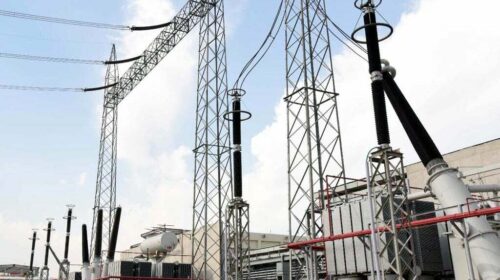Power Division has sought Federal Government’s nod to do away with PM’s relief package on electricity of Rs 5 per unit from May 1, 2022 and continue unscheduled load shedding for the next two or three months aimed at passing minimum impact of FCA to consumers and avoid drain of over Rs 300 billion on expensive fuels, well informed sources told Business Recorder.
International Monetary Fund (IMF), World Bank and Asian Development Bank (ADB) are strongly opposed to the relief package and in a press release dated 24 April subsequent to a meeting with the incumbent Finance Minister Miftah Ismail in Washington DC, IMF noted that the two sides agreed that “prompt action is needed to reverse the unfunded subsidies which have slowed discussions for the seventh review.”
Sharing the details, sources said, on a summary for the ECC submitted by Power Division, the ECC of the Cabinet on March 7, 2022, approved a relief of Rs 5/kWh reduction in electricity bills for Discos’ and K-Electric’s commercial consumers having sanctioned load less than 5 kW and domestic non-ToU consumers having monthly consumption up to 700 units for a period of four months (from March to June 2022).
ECC of the Cabinet further approved a supplementary grant of Rs 106 billion divided into four monthly instalments (Rs 26.5 billion each) to be released at the beginning of each month.
The relief package was notified in terms of Section 31 (7) of Regulation of Generation, Transmission and Distribution of Electric Power Act (NEPRA Act) 1997.
The package was extended to the eligible consumers for the month of March and April 2022 and, accordingly, Finance Division released Rs 39.75 billion against Tariff Differential Subsidy (TDS) and the consumers availed the said relief in monthly bills of March & April 2022.
According to Power Division, actual fuel cost component of generation cost has increased significantly as compared to notified reference fuel cost component. The notified reference of fuel cost component is based on assumptions of Rs 54,484/MT RFO, Rs 1,234/MMBTU RLNG and Rs 12,084/T coal. The revised parameters are projected to be Rs 17,0000/ MT RFO, Rs 2,805/MMBTU RLNG and Rs 74,737/T coal.
Power tariffs to rise for now: govt
As per the mechanism the difference in parameters (reference vs. actual) is being charged to consumers through Fuel Cost Adjustment (FCA) with a two-month lag. Finance Division has released only Rs 39.75 billion for the months of March-May 2022 against the approved subsidy requirement of Rs 79.5 billion. This has resulted in acute shortage of cash flows leading to disruption in the operational activities of power sector.
The sources maintained that a meeting was held in Finance Division on May 6, 2022 under the chairmanship of Minister for Finance and Revenue and it was advised that, given the fiscal constraints and budget deficit, the relief package of Rs 5/kWh – approved by the Cabinet may not be extended for the month of May and June 2022 and a summary may be initiated by Power Division for the Cabinet to discontinue the said relief package with effect from 1st May 2022.
In view of financial constraints, Power Division has requested Federal Cabinet to consider and approve the withdrawal of “PM Relief Package of Rs. 5 per unit”.
Power Division has projected Rs 525 billion government of Pakistan (GoP) injection including Rs 195 billion as Supplementary Grant (SGs) and Technical Supplementary Grants (TSGs) to deal with high prices and delayed tariff.
The sources said the government had earmarked Rs 184 billion in budget as Tariff Differential Subsidy (TDS) + QTA whereas Rs 50 billion has been extended as SG/ TSG on this account.
For Industrial Support Package (ISP), the government had allocated Rs 37 billion in budget but it has also extended additional funds of Rs 15 billion as SG/ TSG for this purpose.
For zero-rated industrial rebate, an amount of Rs 26 billion was earmarked in the budget but government has also approved additional Rs 24 billion as SG/ TSG on this account. For K-Electric, Rs 56 billion was allocated as TDS in budget.
Monthly FCA: Nepra raises tariffs of power distributors
The power utility will also get over Rs 20 billion as PM package.
The sources said, Power Division has requested equity injection of Rs 100 billion to bridge the gap in fuel prices and tariff and cash flow gap. Finance Division advised to utilize the remaining PM Relief Package subsidy of Rs 66 billion to meet cash flow.
On Tuesday electricity generation was recorded at over 21000 MW whereas demand was hovering around 25,000 MW including areas where revenue-based load shedding is being done as per policy agreed with the IMF and World Bank. Presently, available capacity is 21,296 MW against installed capacity of 38,500 MW and dependable capacity of 35,628 MW.
According to sources, 2,771 MW capacity is still under forced outage due to fuel shortage, out of this 1050 MW of RLNG is out since May 5, 2022, which will be back in the system as RLNG is made available.
However, GTPs Faisalabad (120 MW) has been shut since December 13, 2021, Jamshoro (649 MW) since April 18, 2022 and Muzaffargarh (840 MW) since April 8, 2022, the sources said, adding that there is no definite date when they will start operation. Likewise, 112 MW Engro Qadirpur plant is also out from the system since April 18, 2022.
The sources maintained that 1,761-MW capacity is on forced outage due to technical fault. Of this, unit 2 Engro Thar coal of 301 MW in on outage since March 13, 2022, unit -2 Port Qasim 621 MW since May 7, 2022, and unit -10 Guddu-II (TPS Guddu) 100 MW since May 7, 2022. There is no definite date when they will restart generation.
Similarly, Unit -14 (249 MW), unit 15 (249 MW) and unit 16 (241 MW) of Guddu II (Guddu 747 MW) are also on forced outage due to technical faults.
According to sources, unit-14 of Guddu 747 MW and unit-16 of 241 MW are expected to be streamlined on June 15, 2022 and May 12, 2022. However, there is no specific date for unit 15 of 249 MW.
There is a school of thought in the bureaucracy that the government should continue load shedding instead of spending money on expensive fuels like India as almost all the Indian states are facing load shedding after the Indian government stopped import of coal due to higher prices, said an official on condition of anonymity.





